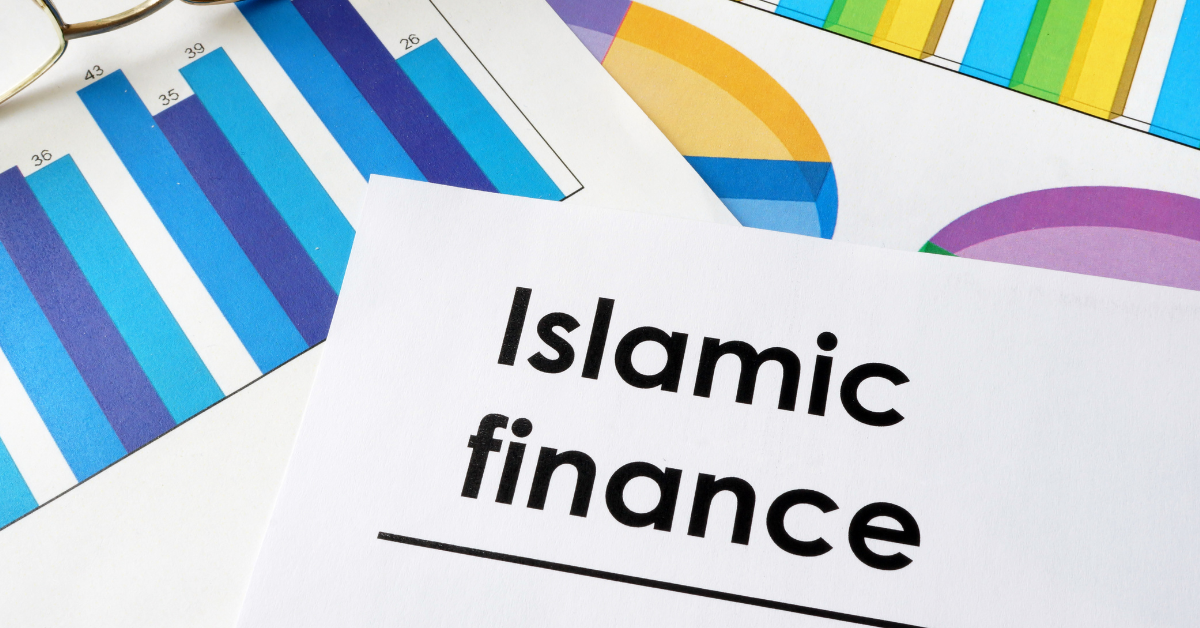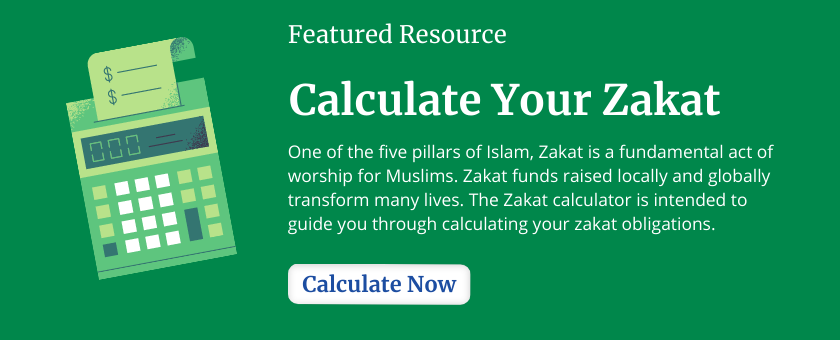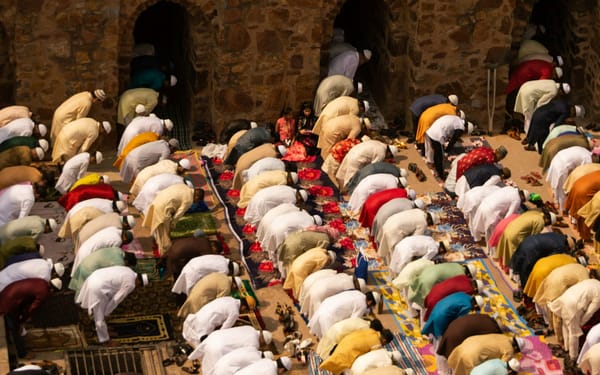10 Islamic Finance terms every Muslim should know

The world of finance can be daunting even to those who are in the finance space. It is no surprise that Islamic finance isn’t any easier. We got you covered with the top 10 Islamic finance terms every Muslim should know in 2022.
Utilizing Islamic financial practices is an important element of the deen.
Being in a traditional western market, you have an Islamic obligation to comply with the teachings of the deen and ensuring you and your families are protected financially.
To keep things practical, this article aims to explain some of the most pressing Islamic finance concepts applicable to the average Muslim’s daily life.

Zakat
As the third pillar of Islam, Zakat is a critical component to properly practice Islam. At its core, Zakat is a form of charity obligatory to all adolescent Muslims who meet the minimum financial threshold or Nisab (more on that later).
How often is Zakat paid?
Zakat is a yearly obligatory form of donation that is due once every lunar year. You can select your own Zakat due date as long as you remain consistent year over year. While some Muslims choose to set their Zakat due date during Ramadan, you have the flexibility to set a date based on your individual circumstances.
Who qualifies to receive Zakat?
Most commonly, poor and the needy are the common recipients of Zakat. Hence, a person or family living below the poverty line will qualify to receive Zakat.
In some cases, Zakat can be paid to individuals who newly reverted to Islam if the financial support will help ease their transition into the faith.
Note that your immediate family (spouse, parents, children) do not qualify to receive your Zakat. You may offer Zakat payment to extended family so long they qualify as poor or needy.
How is Zakat calculated?
Now that the basics have been covered, let us look at how Zakat is calculated. Your Zakat donations amounts to 2.5% of your wealth which has lapsed a lunar year. For example, if your total assets (after deducting your liabilities) amount to $10,000, you would be obligated to pay $250 in Zakat.

Nisab
In order to have a clear understanding of Zakat, you will need to understand Nisab and how Nisab is calculated. Nisab is the minimum threshold of wealth a person must possess in order to qualify for paying Zakat. Based on this threshold, you can determine whether or not you are obligated to pay Zakat.
During the Prophet’s (peace be upon him) time, Nisab equated to 85 grams of gold (commonly referred to as a dinar during the time of the Prophet (peace be upon him)) or 595 grams of silver (commonly referred to as a dirham during the time of the Prophet (peace be upon him)). The exchange rate at the time resulted in the payer paying the same amount of money whether they donated 85 grams of gold or 595 grams of silver.
How is Nisab calculated?
As mentioned above, during the prophet’s (peace be upon him) time, Nisab was calculated based on the value of the dinar and dirham (85 grams of gold and 595 grams of silver respectively).
Gold Nisab – 85 grams of gold ($60.97 per gram at time of writing) or a total of $5,182.45.
Silver Nisab – 595 grams of silver ($0.77 per gram at time of writing) or a total of $458.15.
Gold or silver Nisab?
While scholarly opinion varies, use your judgement to make a decision, we provided a couple scenarios to help you decide:
- Some scholars have stated that the gold nisab helps alleviate financial burdens on lower income individuals. In this case, an individual would not be required to pay Zakat if their wealth falls below the current market value of 85 grams of gold ($5,182.45 at the time of writing).
- Majority of scholars have stated that due to the significant shift in price between gold and silver since the time of the Prophet (peace be upon him), it is recommended that nisab is calculated based on the lower of the two which would be 595 grams silver ($458.15 at the time of writing).
Fidyah & Kaffara
In additional to Zakat, Fidyah is a form of donation that Muslims have to pay if they aren’t able to fulfill their obligation of fasting during the month of Ramadan or later because of health conditions, pregnancy or old age. Payment of Fidyah is only required if you are not able to make up for the fasting days which were missed.
Kaffara is a form of required donation prescribed when you make a promise or commitment you cannot fulfill. This form of donation is a purification for the Muslim especially in dealings with others.
During the time of the Prophet (peace be upon him), Fidyah and kaffara was often paid in the form of food or money used to feed the poor and needy.
How is Fidyah calculated?
Fidyah and Kaffara are different from Zakat in the fact that the amount to be paid is not just a percentage of money. In Surat Al Baqarah verse 184, Allah (SWT) details the criteria for which Fidyah must be paid. At a minimum you are obligated to feed a person in need for every day of fasting you missed.
Fasting is for a fixed number of days, and if one of you be sick, or if one of you be on a journey, you will fast the same number of other days later on. For those who are capable of fasting (but still do not fast) there is a redemption: feeding a needy man for each day missed. Whoever voluntarily does more good than is required, will find it better for him; and that you should fast is better for you, if you only know.
(Qur’an 2:184)
How to pay Fidyah & Kaffara today?
It is recommended to directly feed those in need in your community, however there are multiple ways you can fulfill your religious obligations depending on your circumstances
- Consult with your local Masjid’s social welfare committee regarding local donation opportunities
- Donate food or funds (intended for food purchase) to a local homeless shelter or midway home in your community
- Donate directly through Islamic nonprofit donation organizations such as Islamic Relief and ICNA relief. Make sure to select the correct category to ensure your donations fall in the Fidyah and Kaffara category
Can you still pay Fidyah even if you are able to make up your missed fasts?
The majority scholarly opinion is that any capable individual should make a sincere effort to make up their missed fasting days. Paying Fidyah should be considered a last resort.
Mirath
In its simplest definition, mirath are the governing Islamic laws relating to estate distribution as prescribed in the teachings of the Quran and Hadith. When an individual passes away, the mirath is the portion of their wealth and assets which are distributed amongst their heirs per the teachings of the Quran and the Prophet (peace be upon him). The mirath amounts to at least two thirds of an individual estate and is the religious right to the heirs. The remaining one third can fall under the mirath if the deceased individual does not have a wasiyyah or bequest (more on that next).
Automatic Exclusions from mirath
Mirath laws are very clear, and as such, there are special cases where family members may be automatically excluded from the mirath. In the case of an exclusion, you may include the individual(s) in question in you wasiyyah or bequest (more on that next)
- Illegitimate Parents or Grand Parents (i.e. Parents were not married when you were born)
- Adopted Children, Step/Half Children and Children born out of wedlock
Wasiyyah
A wasiyyah or a bequest signifies the portion of an individual’s estate which they can distribute at their own discretion. An individual’s wasiyyah can amount to up to 1/3 of the total estate. As narated by Sa'd bin Abi Waqqas (Sahih Bukhari: Volume 8, Book 80, Number 725)
I was stricken by an ailment that led me to the verge of death. The Prophet came to pay me a visit. I said, "O Allah's Apostle! I have much property and no heir except my single daughter. Shall I give two-thirds of my property in charity?" He said, "No." I said, "Half of it?" He said, "No." I said, "One-third of it?" He said, "You may do so) though one-third is also to a much, for it is better for you to leave your off-spring wealthy than to leave them poor, asking others for help. And whatever you spend (for Allah's sake) you will be rewarded for it, even for a morsel of food which you may put in the mouth of your wife." …
The majority scholarly opinion is that the wasiyyah or bequest may not exceed 1/3 of the total estate. The remaining 2/3 is Islamically allocated to the heirs as prescribed in the mirath laws.
Is having a wasiyyah required?
Islamically, you are not required to have a wasiyyah. If you choose not to have a wasiyyah, then your entire estate will be distributed to your heirs as prescribed in the mirath laws.
Who can be included in a wasiyyah?
The person(s) or entities you wish to include in your wasiyyah cannot already be heirs to your estate by way of the mirath (for example: parents, children, grandchildren, etc.). It is narrated by Ibn Abbas that the Prophet (peace be upon him) has said (Sunan Tirmizi)
“Allah has Himself given everyone, who has a right, his right. So, there is no will for any inheritor.”
Listed below are common recipients on a wasiyyah:
- Masjid (mosques): Legacy giving to mosques is a common way to establish sadaqah jariyah or endless giving. You may consider to include a local masjid in your community to your wasiyyah
- Non-profit organizations: You may also choose to financially support local grass-roots organizations (i.e. local homeless shelter and animal shelter) or national organizations (i.e. Islamic Relief USA and ICNA Relief USA).
- Family members excluded from mirath by way of “ta-sib” (more on that next)
- Non-Muslim Family Members (i.e. Spouse, Parents, Grand Parents, Children, Uncles, etc.)
- Illegitimate Parents or Grand Parents (i.e. Parents were not married when you were born)
- Adopted Children, Step/Half Children and Children born out of wedlock
Ta-sib
According to ShariaWiz Ta-sib is when a survivor receives a share of the estate that is not predetermined or prescribed. Since some shares are already predetermined in Mirath, Ta-sib is how we calculate the share of the heirs who didn’t get a prescribed share of the estate. For example, if the survivors are a mother and one son, the mother’s prescribed shares are a ⅙ of the estate. Therefore, the son’s prescribed share is ⅚ of the estate, by Ta-sib.
Ta-sib is split into three types:
Taʿsīb through self (ʿaṣaba bi nafsihi): It includes all male heirs except the husband and maternal brothers.
Taʿsīb as a derivative of another (ʿaṣaba bi ghayrihā): This is where sons, a son’s sons, full brothers, and paternal brothers all bring their sisters within the taʿsīb category.
Taʿsīb with another person (ʿaṣaba bi maʿa ghayrihā): Where full sisters and paternal sisters take through taʿsīb with daughters or son’s daughters.
For example, if the survivors are a mother, a daughter, and a brother, the mother’s prescribed share is ⅙, and the daughter’s is ½. So, the remaining share of the brother will be ⅓ (balance left by Ta-sib).
These next four terms are where Islamic finance really starts to kick in. This is how you’ll be able to distinguish between Islamic home mortgages and traditional mortgages. It’s not that complicated if you focus on really grasping the concept of each and every one of these terms, so let’s take it one step at a time.
Ijara
This is an extremely straightforward Islamic financing technique that is used to finance the attainment of assets on terms compliant with Islamic Sharia. It basically means providing a service or a good on a wage.
How does Ijara work?
It’s a leasing agreement whereby the bank buys an item for a customer and then leases it back over a specific period of time. For example, an Islamic bank can buy an apartment for you and make you obligated to pay its worth in monthly rent payments.
What is Ijara-wa-Iqtina?
This is where the bank gives the lessee the right (but not the obligation) to purchase the asset at or before the end of the lease term.
Musharaka
If you’ve guessed this one means joint partnership, you got it right! Musharaka is a joint partnership where two or more persons combine either their capital or labor, forming a business in which all partners share the profit according to a specific ratio, while the loss is shared according to the ratio of the contribution. In this collaboration, the partners get to agree on profit sharing terms in advance and thus, losses are pegged to the amount invested.
Murabaha
This financing technique enables customers to buy properties without taking out interest bearing loans. How does that work, you may ask. Well, the bank buys an item and then sells it on to the customer on a deferred basis. What happens is that the customer and the bank agree on a profit margin that the bank then adds to the price of the item being sold to the customer.
Ijara, Musharaka and Murabaha are all Islamic financing ways that can help you finance your assets in a halal manner that doesn’t involve interest bearing loans.
Riba
We’ve talked about Halal financing ways, now let’s not forget to mention the haram ones as well! Riba literally means an increase or addition and is simply the equivalent of interest.
Technically it denotes any increase or advantage obtained by the lender as a condition of the loan. Any risk- free or "guaranteed" rate of return on a loan or investment is riba. Riba, in all forms, is prohibited in Islam. So, to keep it simple, It’s when you take out a loan and end up paying the lender more than the initial amount of money they lend you.





